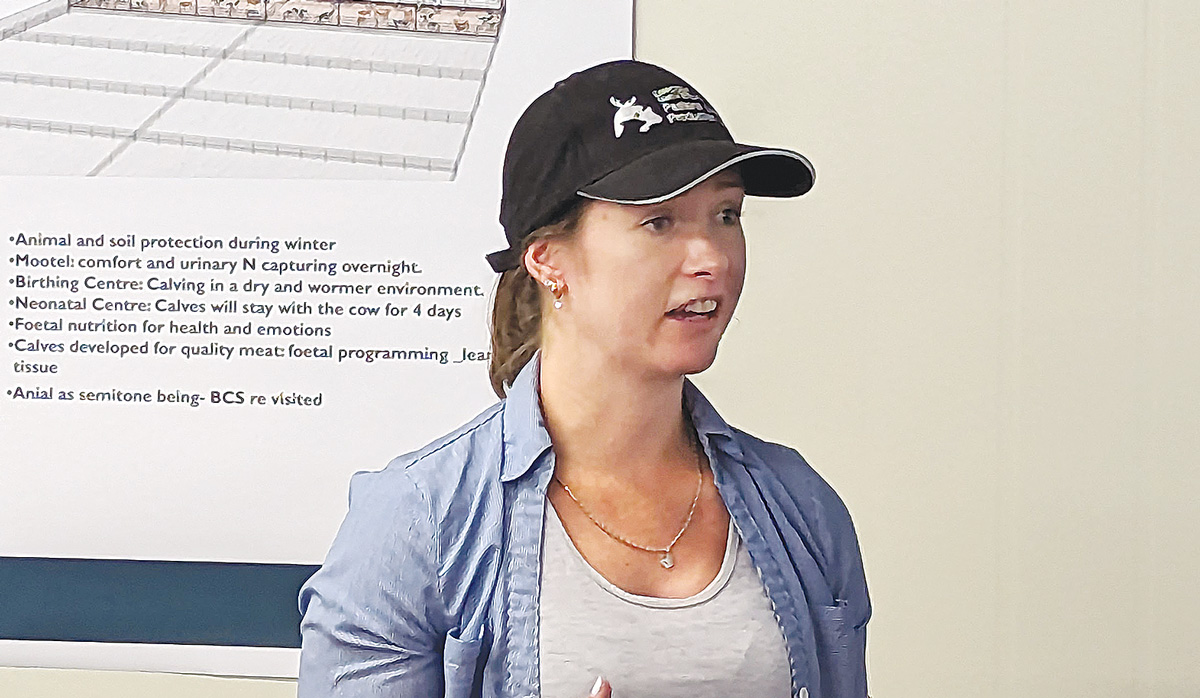Wired for Science: Understanding the feeding habits of mealybug
Fussy children might be frustrating, but fussy mealybugs could help protect the New Zealand wine industry from grapevine leafroll-associated virus 3.
Lincoln University has launched a new research venture which aims to lead the way towards a more ethical and sustainable way of dairying.
The Integral Health Dairy Farm is being establishd acros a large portion of the University's Ashley Dene Research and Development Station at Springston.
The project focuses on "producing healthier dairy products, removing the negative connotations and environmental impact of dairying, providing a positive emotional environment for animals, offering a new range of narratives for the industry and enhancing the sense of belonging to the land".
The project is led by Professor of Livestock Production Pablo Gregorini, who told a recent open day that the farm aimed to produce "not milk, but health".
"We are members of nature's community. What we do to them we do to ourselves, only by nurturing them can we nurture ourselves. Only by healing them can we heal ourselves."
Gregorini also heads the University's Pastoral Livestock Production Lab, which has recently released research demonstrating that cows bred for low-N emissions and fed on diverse pastures produce milk containing higher levels of substances valuable to human health.
 |
|---|
|
Farm research manager, Dr Anita Fleming said they brought a more biochemical diversity into the pasture system. |
He said there was a need to re-engage with a society which was looking for changes in production systems and where some people were seeking to live lives absent of animal products.
Gregorini said the project was a collaborative effort with input from universities students and researchers around the world.
The farm's guiding principles include:
To achieve those goals, the farm will feature what they call multipiece adjacent pastures - strips of various forages - and multifunctional browsing sites, in the form of many small blocks of trees, shrubs and herbs giving cows both shelter and a choice of feed giving both a "hedonic benefit" and self-medication for minor ailments.
Structures will include a sheltering "mootel" and birthing unit.
The farm's research manager, Dr Anita Fleming, said they wanted to bring more biochemical diversity into the pasture system and allow cows to make their own decisions about what to eat.
She said cows find it difficult to selectively graze mixed pastures, so they have come up with the concept of adjacent pastures, with strips of different forages that the animals can easily distinguish and pick from.
Stocked with crossbred cows, the farm would implement a calving system that was less stressful for calves and mothers, and produce an animal that isn't considered just a by-product.
The open day also included presentations from some of the collaborators including suppliers of high-tech monitoring and management systems.
The farm will include what is called Green Artificial Intelligence to constantly measre carbon and greenhouse gs flow in real time.
It also intends using ear tags from Waikato-based ProTag, which monitor all the usual parameters of cows' vital signs and activity, but in a small solar-powered ear-tag package without collars or counterweights.
ProTag co-founder Tyrel Glass told the open day that part of the solution to its small size was using a power-saving system in which only a few tags at any time would be communicating whole herd data over significant distances. Most ear tags in the herd would be communicating with low power only over short distances to those relays. The method would "smear" power consumption across the entire herd, he said.
Pāmu has welcomed ten new apprentices into its 2026 intake, marking the second year of a scheme designed to equip the next generation of farmers with the skills, knowledge, and experience needed for a thriving career in agriculture.
One team with 43 head, including a contingent from Mid Canterbury, are reflecting on a stellar NZ DairyEvent.
Fonterra farmer shareholders have approved the mechanism for a $2/share capital return expected from the sale of its global consumer and associated businesses.
Trainees in the horticulture industry studying towards a certificate or diploma can now apply for Horticulture New Zealand's (HortNZ) 2026 Industry Training Scholarships programme.
OPINION: The first three Global Dairy Trade (GDT) auctions have been a morale booster for farmers.
Former Fonterra executive Alex Turnbull has been appointed CEO to lead all five Yili Oceania Business Division companies in New Zealand.